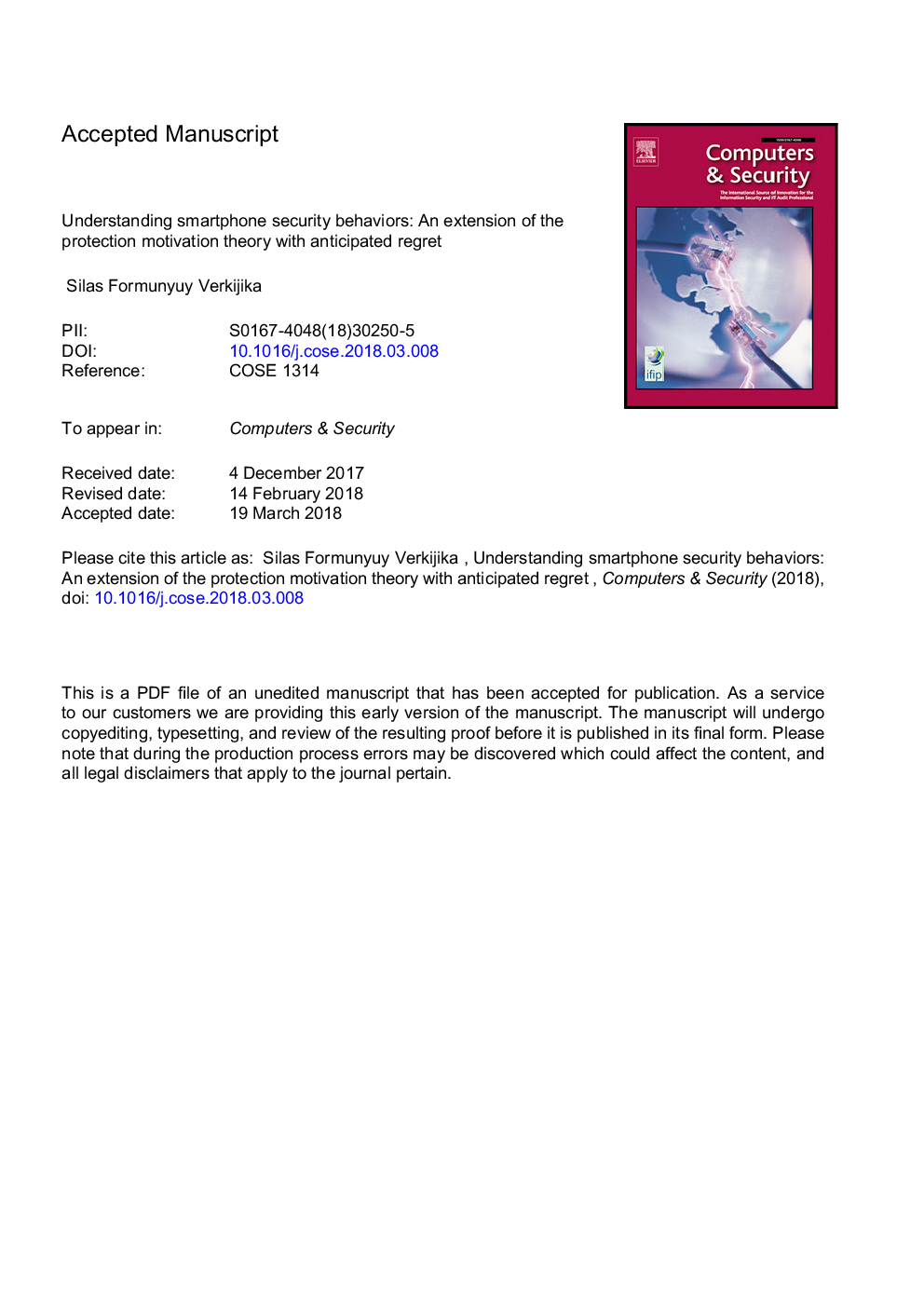| Article ID | Journal | Published Year | Pages | File Type |
|---|---|---|---|---|
| 11002570 | Computers & Security | 2018 | 28 Pages |
Abstract
Many people nowadays perpetually live their lives through their smartphones. This has been made possible by the connectivity capability of smartphones and the numerous smartphone apps that exist for most of what users want to do. As a result, a substantially valuable and sensitive amount of information is being stored and/or processed via smartphones, making them a key target for cybercriminals. However, research on smartphone security behaviors is still very limited when compared with the matured research on organizational security behaviors. In this given, this study proposed a model for understanding smartphone security behaviors based on a modification of the protection motivation theory (PMT) by including the role of anticipated regret as a mediator between the threat dimensions of the PMT and security intentions/behaviors. The results showed that perceived vulnerability and perceived severity had a significant positive influence on anticipated regret. Also, self-efficacy and anticipated regret had significant direct associations with smartphone security intentions, while anticipated regret and smartphone security intentions positively influenced smartphone security behaviors. The study culminates with a discussion of the practical and research implications of these findings.
Related Topics
Physical Sciences and Engineering
Computer Science
Computer Networks and Communications
Authors
Silas Formunyuy Verkijika,
